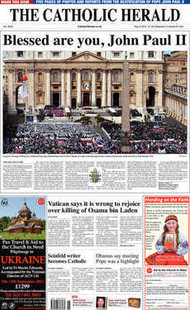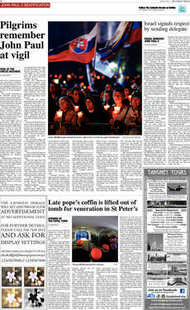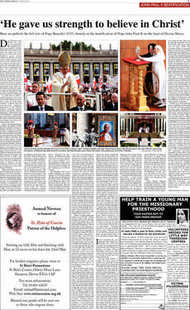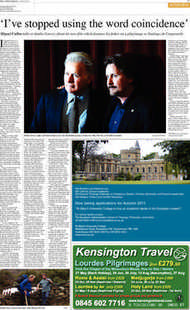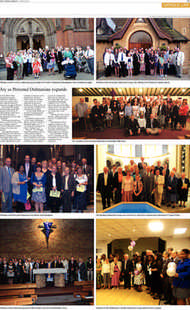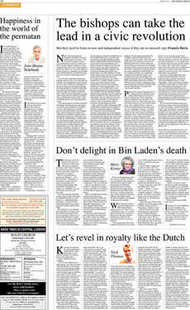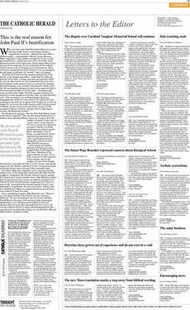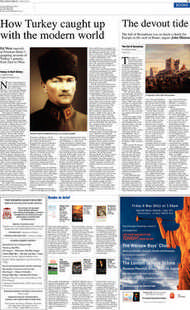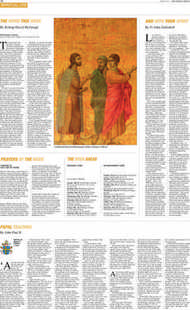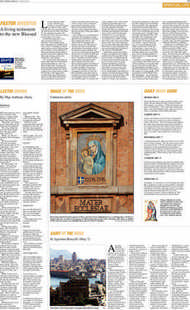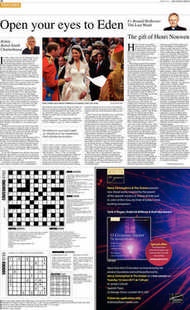Page 6, 6th May 2011
Page 6
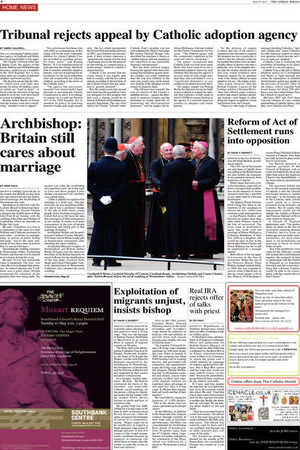
Report an error
Noticed an error on this page?If you've noticed an error in this article please click here to report it.
Tags
Share
Related articles
‘they Only Hate Me Because I’m A Catholic,’says Princess...
Parliament Debates Monarchy Bill
Scrap The Act Of Settlement, Says Anglican Leader
Royal's Fiancée Gives Up Her Catholic Faith
Cardinal O’brien Attacks ‘offensive’act Of Settlement
Reform of Act of Settlement runs into opposition
BY DAVID V BARRETT
REFORMS to theAct of Succession are being blocked, according to reports.
The 1701Act of Succession not only bans a Catholic from succeeding to the British throne but also forbids the monarch, or any potential monarch, from marrying a Catholic.
Many argue that such a law is discriminatory, especially as there is no equivalent prohibition on the monarch or future monarch marrying a member of any other faith or Christian domination.
The Deputy Prime Minister Nick Clegg has been in the forefront of the campaign to reform the law, which also enshrines male primogeniture – so that Princes Andrew and Edward are higher than their older sister Princess Anne in the line of succession. The issue came to prominence again last week with the marriage of Prince William to Catherine Middleton. If their first child is a daughter, she would be next in line to the throne after Prince Charles and Prince William, but she would be supplanted by a younger brother.
Both effects of theAct apply to everyone in the line of succession. When the son of the Princess Royal, Peter Phillips, marriedAutumn Kelly in 2008 she was required to convert from Catholicism so that he would remain 11th in line. When in 1978 the Queen’s cousin Prince Michael of Kent married a Catholic who kept her faith, he lost his place in the line of succession.
The British monarch is supreme governor of the Church of England, and so could not realistically be of any other faith unless theAnglican Church were disestablished – a far more radical constitutional change.
The argument behind the ban on the monarch marrying a Catholic is that the Church encourages parents in “mixed marriages” to be brought up in the Catholic faith, which could result in a future monarch being brought up Catholic. But in reality this requirement would not be upheld; the children of Prince and Princess Michael of Kent were raised as Anglicans.
A Church of England spokesman said: “The prohibition on those in the line of succession marrying Roman Catholics derives from an earlier age and inevitably looks anomalous, not least when there is no prohibition on marriage to those of other faiths or none.
“But if the prohibition were removed the difficulty would still remain that establishment requires the monarch to join in communion with the Church of England as its Supreme Governor and that is not something that a Roman Catholic would be able to do consistently with the current rules of that Church.”
blog comments powered by Disqus


